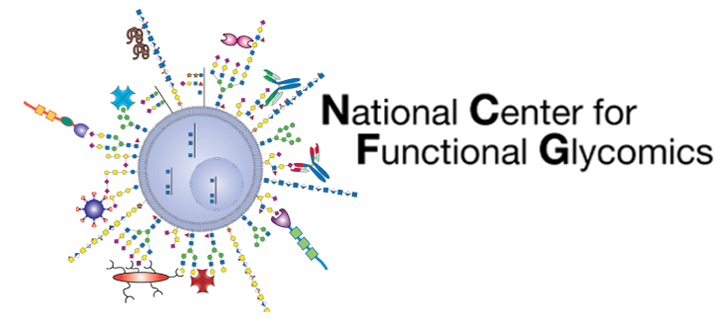Zhong A, Gordon Jiang, Cummings R, Robson S. Various N-glycoforms differentially upregulate E-NTPDase activity of the NTPDase3/CD39L3 ecto-enzymatic domain.. Purinergic Signal. 2017;Sep 27:1–9.
Abstract
The GDA1/CD39 ecto-nucleoside triphosphate diphosphosphohydrolase (E-NTPDase) superfamily is a group of eight heavily glycosylated ecto-enzymes that hydrolyze extracellular nucleosides di- and tri-phosphates in the presence of divalent cations, to generate the monophosphate derivatives. This catalytic process differentially regulates a complex array of purinergic signaling responses. NTPDase3/CD39L3is dominantly expressed in pancreatic islet cells, where it may regulate insulin secretion, and has seven N-linked glycosylation sites with four close to five highly conserved domains called “apyrase conserved regions” (ACRs). In a manner similar to CD39, NTPDase3/CD39L3 uses ATP as its preferential substrate and also possesses significant activities toward other triphosphate and diphosphate nucleosides. To understand the mechanism of the ecto-NTPDase activity and substrate specificity, potentially impacted by N-glycans, we have generated soluble enzymatic domains of NTPDase3/CD39L3 in human embryotic kidney cells with four different glycan modifications. These include mannose5–9 glycans with kifunesine treatment, single GlcNAc-Asn by treatment with EndoH, de-glycosylated form by treatment with PNGaseF, and wild-type glycans. Our functional data indicate that the non-glycosylated NTPDase3/CD39L3 ecto-enzymatic domain retains activity, but that N-glycan attachments, such as the GlcNAc-Asn, substantially upregulate specific NTPDase activity by 2–20 fold. Both the Vmax and the Km on di- or tri-phosphate nucleosides are substantially and differentially altered by the glycan attachments. Structural modeling analysis based on putative structures derived from bacterial-originated CD39 domain proteins suggests that N-glycan modifications at Asn149 next to ACR2 and/or Asn454, N-terminal to ACR5 have critical roles in regulating the catalytic pocket of NTPDase3/CD39L3. Our data provide both new insights into the enzymatic mechanisms of NTPDase family members and further evidence that N-glycans directly modulate functional ectonucleotidase activities.
Last updated on 03/06/2023
